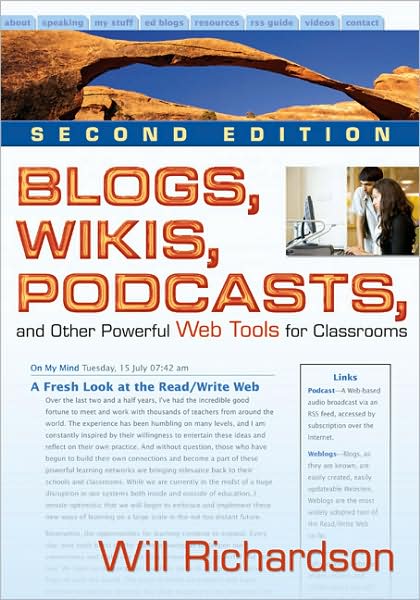If you are an administrator looking for an overview of read-write web tools that are useful in the classroom, Blogs, Wikis, Podcasts, and Other Web Tools for Classrooms Second Edition is an excellent starting point. Richardson starts the book explaining the nature of the read-write web and discussing in a general way its promise as an educational tool. The he proceeds to describe seven read-write tools in each of the following chapters. The strength in Richardson’s book lies in his straight-forward description of these tools, suggestions of possible classroom uses, and the examples of those uses. I would consider myself somewhere close to be a poweruser of the web, but this book added some additional ideas for classroom use to my sharing repertoire. I now feel even more confident discussing with teachers their use of these tools in the classroom. For example, chapter 4 in the book focuses on wikis. I was familiar with wikis. I have even set up wiki pages myself for various kinds of uses as an administrator, but Richardson’s explanation of the nature of wikis combined with suggestions and examples of classroom uses set my own mental wheels to turning. I even have some plans to establish a wiki for an administrative project I have been thinking about for my school. Chapter 5 on RSS feeds is even more thorough as Richardson talks about the mechanics of RSS without getting too bogged down in details. In addition to the mechanics of RSS, he also gives some very interesting classroom application ideas too. The seven Read-Write Web Tools described in this book are:
- Weblogs
- Wikis
- Real Simple Syndication (RSS)
- Aggregators
- Social Bookmarking
- Online Photo Galleries
- Audio/Video Casting
Will Richardson’s book is an excellent addition to the 21st Century Principal’s library.

No comments:
Post a Comment